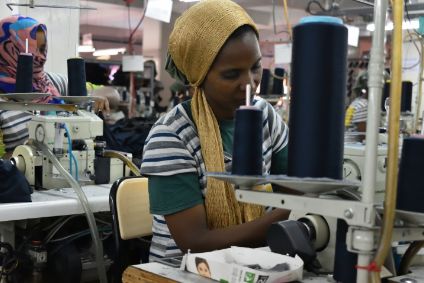Global garment makers demand better terms
Garment makers in nine countries spanning Asia, the Middle East and North Africa have banded together to demand better contract terms from global clothing retailers, according to a draft document seen by Reuters.
The suppliers hope their united front will prevent retailers from playing them off against each other in search of more lenient terms after suffering from widespread cancellations and payment delays at the start of the coronavirus pandemic.
Global retailers including Arcadia, Gap, Kohl’s, and Primark cancelled or paused orders with garment-making factories in Bangladesh worth almost $3.7 billion in March and April last year, the results of a local survey of factories seen by Reuters showed.
While some, including Primark, H&M, Inditex and Gap, later committed to paying the cancelled orders in full, campaigning coalition PayUp estimates $18 billion out of $40 billion worth of payments are still outstanding globally.
Arcadia and Kohl’s did not respond to a Reuters request for comment.
Thirteen associations representing garment suppliers in China, Bangladesh, Myanmar, Cambodia, Vietnam, Pakistan, Turkey, Morocco and Indonesia have drafted minimum terms they hope to present to clients, including a maximum 90-day payment term and an end to discounts after orders are placed.
The draft document, due to be finalised and released in late April, is a joint initiative of the Star Network, funded by Germany’s international development agency GIZ, and the International Apparel Federation.
“It has become very clear to manufacturers that their vulnerability has increased and that they must play a stronger role in setting standards for purchasing practices,” a statement announcing the initiative published on Thursday said.
Though the document will not be legally enforceable, the aim is to foster purchasing practices which “do not cross the boundary of misuse of buying power to the obvious and avoidable detriment of the manufacturer,” according to the release.
A later phase of the initiative would also aim to build ways of enforcing the terms, including an international arbitration mechanism for manufacturers to raise grievances with buyers.
“We tended to blindly trust our customers,” said Miran Ali, spokesman for the Star Network. “If they said they want to buy 100,000 yards of fabric from us and they’ll send the purchase order in three weeks, we’d just go ahead and do it. That faith has been lost.”
Global retailers lost $1.2 trillion in sales in 2020, a 3.9% drop, according to research firm Forrester, as global lockdowns decimated demand and shut stores for months on end. Though some sales were recuperated online, many clothing retailers were forced to impose steep discounts in an attempt to get rid of unsold stock.
The Penn State Center for Global Workers’ Rights said in a report that U.S. and European Union trade data showed a $16.2 billion drop in apparel imports in April through June 2020.
While clothing sales are beginning to recover from last year’s record losses, orders are still far smaller than before the pandemic, with shorter lead times and longer payment windows, factory owners, sourcing agents and retailers themselves say.
The draft document says retailers must pay suppliers within 90 days, with deferred payments attracting an additional fee to cover interest and loss of profit, while discounts could not be requested after a purchase order is issued.
Source: Reuters


